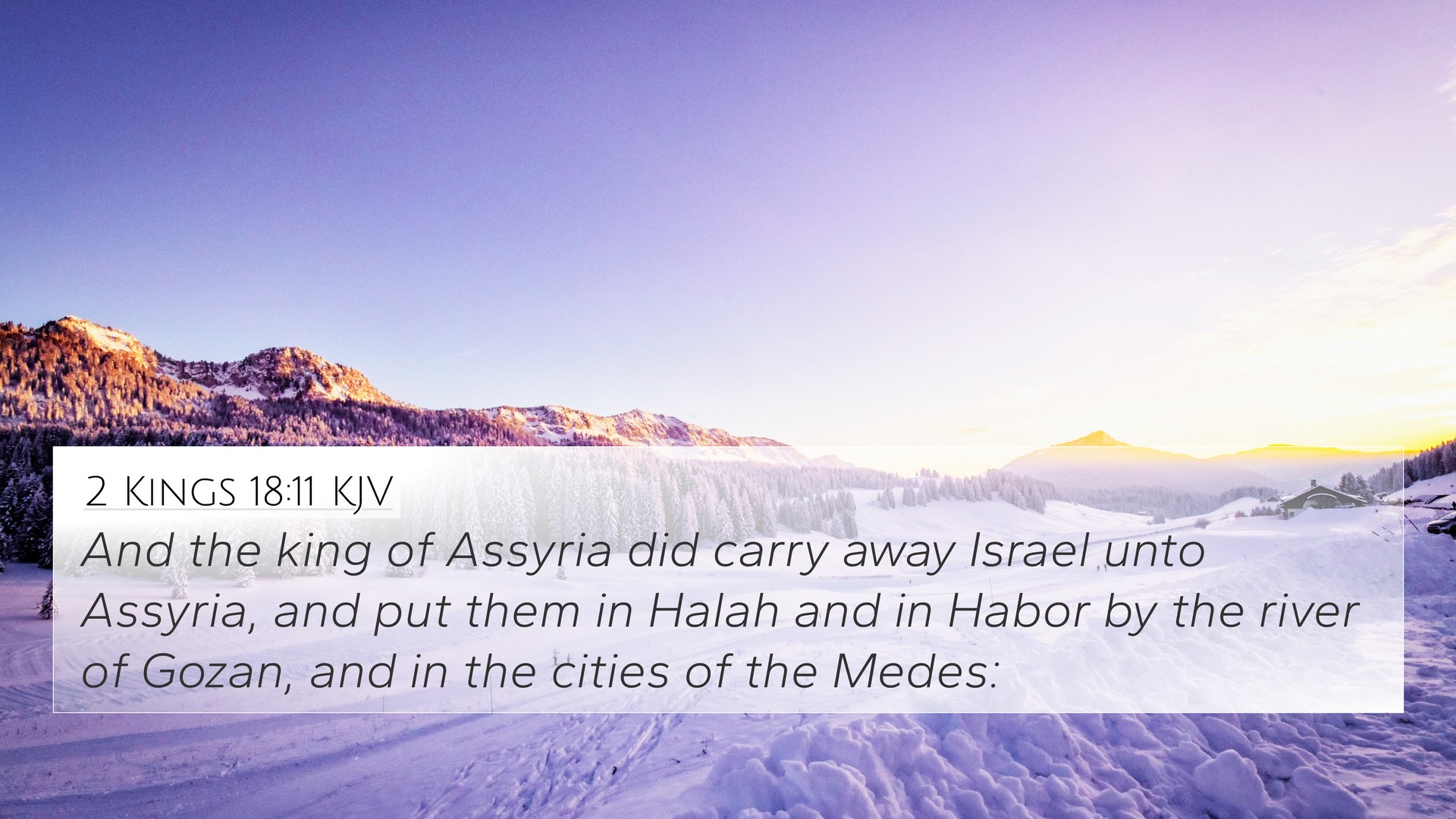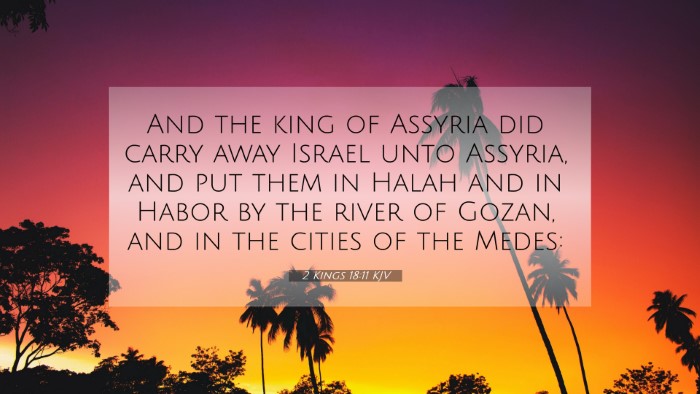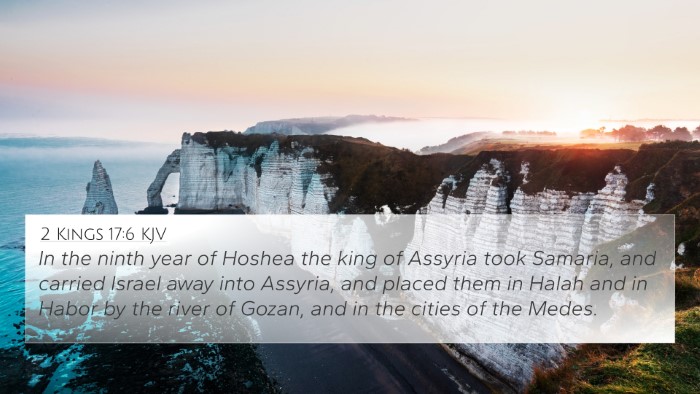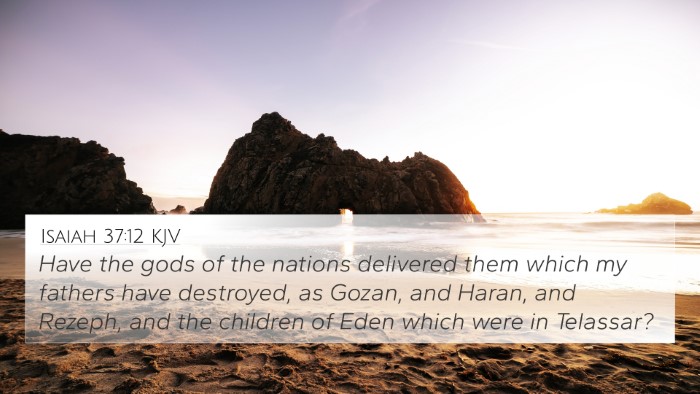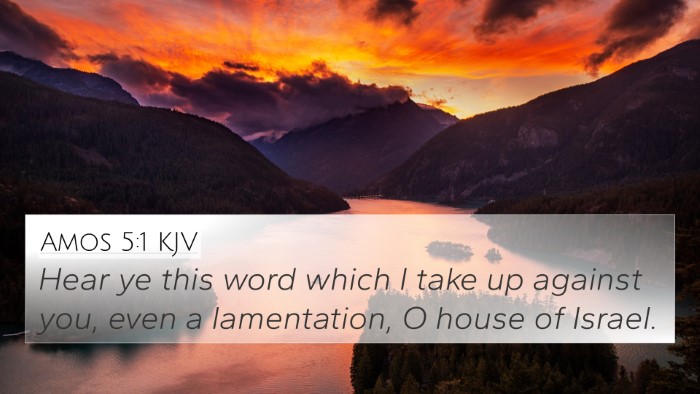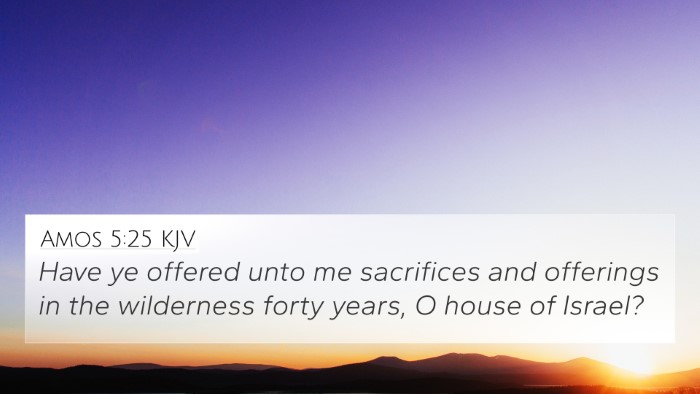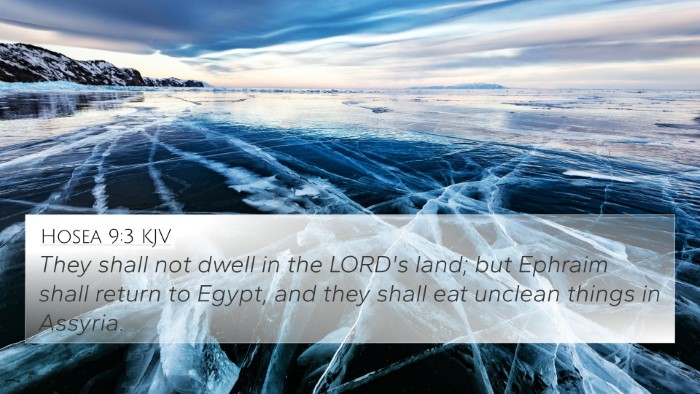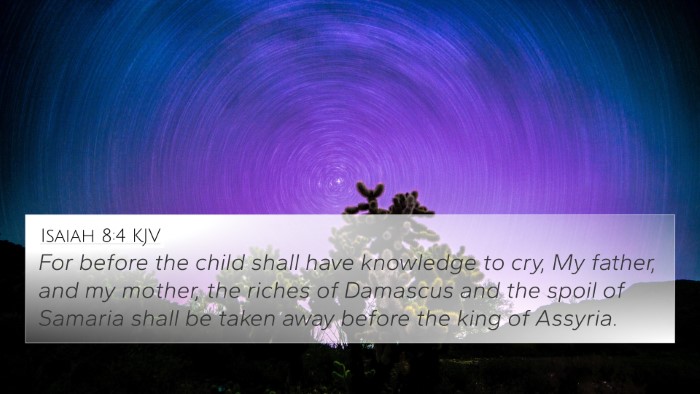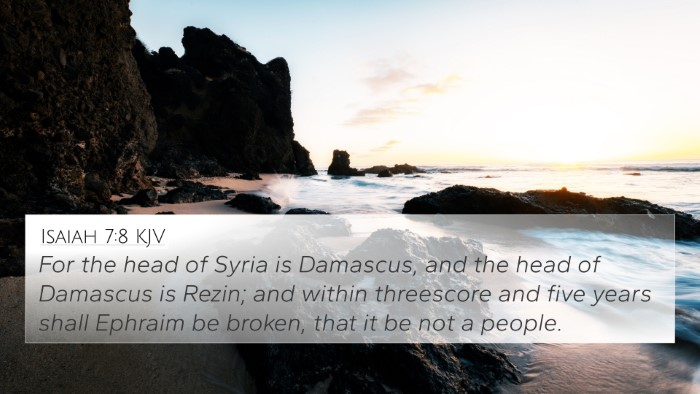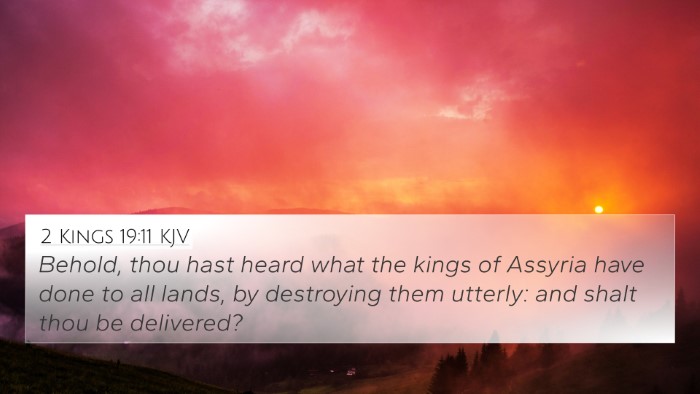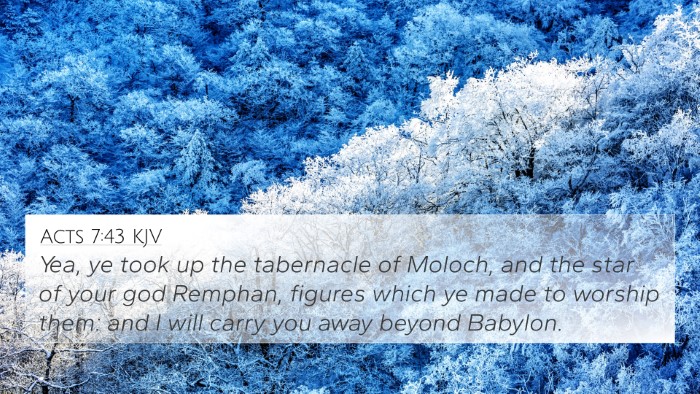Understanding 2 Kings 18:11
2 Kings 18:11 states: “And the king of Assyria did carry away Israel unto Assyria, and put them in Halah, and in Habor by the river of Gozan, and in the cities of the Medes.” This verse marks a significant moment in the historical narrative of Israel's decline and ultimately their exile.
Contextual Background
The context of this verse lies within the account of the Assyrian conquest of Israel. King Hoshea, the last king of Israel, reigned during a time of severe political and spiritual distress. The Assyrian empire was the dominant power, and they threatened and eventually overthrew the northern kingdom of Israel.
Commentary Insights
Matthew Henry
Henry notes the providence of God in the events leading to Israel’s exile. He emphasizes that the Assyrian captivity is the result of Israel's unfaithfulness and disobedience to God. This exile serves as divine punishment and a warning to others.
Albert Barnes
Barnes highlights the geographical locations mentioned in the verse, indicating that the Israelites were exiled to regions far from their homeland, which illustrates the depth of their punishment. He explains that the mention of these locations is not merely historical but serves to emphasize the totality of the captivity and the dispersion among distant nations.
Adam Clarke
Clarke provides a detailed analysis of the significance of the king of Assyria's actions. He suggests that this was not just a territorial conquest but a strategic move to diminish the religious and cultural identity of the Israelites through exile.
Thematic Connections
The theme of judgment and exile permeates the entirety of this narrative and is echoed throughout the Scriptures, particularly in relation to Israel's covenant with God.
Cross-References
Several Bible verses connect with 2 Kings 18:11, offering deeper insights into its implications:
- 2 Kings 17:6 - Discusses the first exile of Israel and the conquest by Shalmaneser.
- Isaiah 36:1 - Relates to the Assyrian threat during King Hezekiah's reign.
- Jeremiah 15:4 - Prophesies the desolation and exile of Israel.
- Ezekiel 12:15 - Expresses how God will scatter Israel among the nations.
- Amos 7:11 - Points to the imminent judgment and exile foretold by the prophet Amos.
- Hosea 9:3 - Mentions the impending judgment on Israel.
- Micah 1:6 - Describes the destruction leading to the captivity.
Interpretation and Implications
This verse serves not only as a historical account but also as a serious warning about the consequences of turning away from God. The exile is portrayed as a critical event in Israel’s history that reflects both God’s justice and mercy.
Identifying the Patterns
Through comparative Bible verse analysis, readers can see how the New Testament expands on these themes. For instance:
- Romans 11:25-26 - Discusses the future restoration of Israel.
- Hebrews 12:6 - Emphasizes God's discipline of his children.
- Matthew 23:37-39 - Reflects on Jerusalem's history of rejection of prophets.
Tools for Cross-Referencing
Utilizing tools for Bible cross-referencing, such as a Bible concordance or a cross-reference Bible study method, can greatly enhance one’s understanding of verses like 2 Kings 18:11. These tools allow readers to uncover the rich tapestry of connections throughout scripture, offering insights into biblical themes and narratives.
Conclusion
In conclusion, 2 Kings 18:11 serves as a reminder of the serious consequences of spiritual disloyalty and the fulfillment of prophecy. Through inter-Biblical dialogue and thematic connections, individuals can gain a comprehensive understanding of God’s dealings with Israel and the lessons that resonate throughout the entirety of Scripture.
Engage with the Text
For those seeking deeper knowledge, asking questions such as “How do the teachings of the New Testament relate to the exile of Israel?” or “What verses support the interpretation of judgment in 2 Kings 18:11?” can lead to richer engagement with the Biblical texts.
